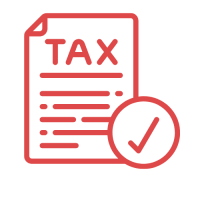If you are an employer who makes additional or extra super contributions, you are required to report them through Single Touch Payroll (STP).
However, there are two kinds of super contributions that you can make – reportable and non-reportable. As an employer, it’s essential to know the difference between the two as they could affect your and your employees’ returns.
Reportable Employer Super Contributions
Reportable employer super contributions (RESC) are not part of your employee’s assessable income. When calculating the super contributions for your employees, RESC should not impact this.
The following are types of employer super contribution that are reportable:
- Additional contributions as part of an employee’s salary package
- Other contributions under a salary sacrifice arrangement
- Pre-tax amounts paid to an employer’s super fund at the employee’s direction, such as directing an annual bonus into super.
Extra contributions must be reported by employers if:
- The employee that you are paying the contributions to can influence the rate or amount of super that you contribute for them, and
- The contributions are in addition to the compulsory contributions you must make under the super guarantee, a collectively negotiated industrial agreement, the rules of a super fund or federal, state or territory law.
The extra contributions are reportable super contributions unless you show that:
- You have made the extra contributions for administrative simplicity
- A documented policy is in place that does not allow an employee to influence the contributions that you make on their behalf.
Non-Reportable Employer Super Contributions
The following employer super contributions are not reportable, however, and are not part of an employee’s assessable income:
- super guarantee contributions
- contributions required by collectively negotiated industrial agreements
- matching contributions under a collective agreement (but matching contributions under an individual agreement are reportable)
- to a defined benefit fund (exceptions may apply)
- contributions required by super fund rules or a law
- extra contributions that the employee could not influence, such as extra contributions for administrative simplicity or accepted employer policy
- contributions from the employee’s after-tax income
Keep Your Records Up To Date
To ensure that you remain compliant with your employees’ super contributions, you must keep accurate records. This will show whether your employee influenced the super contributions you made on their behalf.
This may include records of:
- How you calculated reportable employer super contributions
- The method used to calculate the employee influenced portion of the total employer contribution
- How you calculated your employee’s salary or ordinary time earnings (OTE)
- Relevant salary sacrifice agreements
- Relevant industrial agreements
You must keep these records for five years from the date of preparation, obtained, or completion date, whichever occurs last.
Ensure that you are doing the right thing by your employees when it comes to their super by having a conversation with us to be sure that you are acting in compliance with what is needed.













